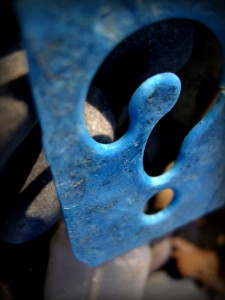Answered by Dr. Abdullāh bin Bayyah | Translated and Abridged by Suhaib Webb

Question:
I have a question regarding certain habits of the Prophet (ﷺ), such as applying antimony to his eyes, lengthening his hair or eating tharīd (porridge). Are these customs of the Prophet (ﷺ) which he enjoyed, or are they acts of worship that we get rewarded for if we follow them?
Answer:
Some scholars consider these as habits of the Prophet (ﷺ), while another group consider their manner of performance (and not the actual act) as worship. This means that applying antimony (kuhul) or eating a certain food in the same manner as the Prophet (ﷺ) is what would be recognized by Islamic law.
This was mentioned by the writer of Murāqī al-Su’ōd who said:
“An action related to his habits
Without discarding the description …”
Meaning, the acts of the Prophet (ﷺ) that are related to his normal habits are not part of Islamic legislation. However, if someone wanted to apply antimony to his eyes, we would encourage him to follow the Prophet’s manner of applying it to his eyes—by starting with the right eye and then the left, since following his method is a recommended act.
Scholars differ about whether some acts of the Prophet (ﷺ) are considered acts of worship or habits of the Prophet (ﷺ). For example, his (ﷺ) performing Hajj while riding, and laying down on his side before the dawn prayer after praying the two sunnah rak`as – Imam Ahmed considered them recommended; Imam Mālik, on the other hand did not, stating that they were from the habits of the Prophet (ﷺ).
This was mentioned by the writer of Murāqī al-Su’ōd who said:
“(Like) his performing Hajj while riding occurred
Like his resting on his side after praying the sunnah of the dawn prayer”
This is a simple issue; whoever wants to observe these acts, then that is good, and whoever chooses not to, then there is no guilt upon him.

Masha Allah, such wisdom in his answer. May Allah showers him with mercy.
One of the ways to understand if something the Prophet (peace be upon him) did is a part of the religion is to look if there is a verbal hadith encouraging it… If there is no hadith that wants us to do it or encourages to do it, this shows that this is only a habit and not ‘sunnah’ in the narrow sense…
Fi amanillah…
Salaams,
We should be careful when discussing which actions are customary (Jibiliyy) and which are related to the shariah (tashri’i). This is an area related to Maqasid al-sharia (The Science of the aims and objectives of the shariah), which means only qualified scholars may engage in deciphering actions and categorising them based on a judicial attempt to understand they wisdom. Thus this excludes the lay.
Secondly, it is also important to note what Shaykh Tahir ibn Ashur (r) said regarding the difference between customary and shar’i acts:
“You should also know that the capacity which is most specific to God’s Messenger is that of legislation, because that was God’s primary objective in sending him to mankind. Indeed God has stated in the Quran that legislation was the Prophet’s exclusive quality. “Muhammad is only an apostle” (3: 144). For this reason we should consider the statements and actions that ensued from God’s apostle relating to the general condition of the Muslim community to be a matter of legislation unless there is circumstantial evidence to the contrary. “(Treatise on Maqasid al-Sharia, p. 50)
Thus the Asl (default) is that everything the Prophet does is to be followed and is guidance unless there is evidence to suggest otherwise. This means that the burden of proof will be on those who claim a certain action is from the Prophets customary acts (jibiliyya) and not those who claim that it is part of the Shariah. Lastly, I’m not aware of any difference of opinion on this principle as mentioned by Ibn Ashur.
Wassalam
Haq…